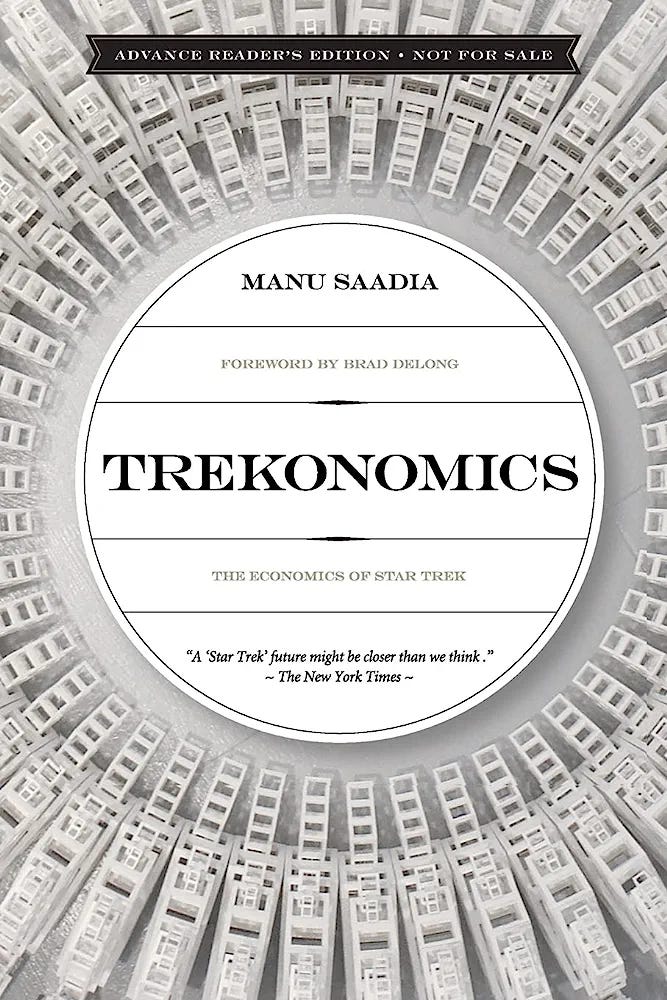Infinite Diversity In Infinite Combinations: Star Trek Was Woke From The Beginning
IDIC was Roddenberry's way to ensure that Star Trek would be forever woke
It's often been said that folks who somehow complain that Star Trek's “suddenly woke” haven't been paying attention.
And fans often will cite moral parables like the sharp critique of racism found in “Let This Be Your Last Battlefield” from the original series, or allegory which condemned our society's anti-AIDS prejudice in the Star Trek: Enterprise episode, “Stigma.”
But Star Trek's wokeness is even more fundamental — and “baked in” — than that.
It's called Infinite Diversity In Infinite Combinations, or IDIC.
Star Trek creator Gene Roddenberry originated the IDIC philosophy as a Vulcan belief, with the IDIC pendant which we first see Spock (Leonard Nimoy) wear in the original series episode, “Is There in Truth No Beauty?”
Spock describes pendant thus: “The triangle and the circle...different shapes, materials, textures...represent any two diverse things which come together to create here...truth or beauty.”
But the importance of IDIC goes far beyond just a piece of jewelry.
“If we cannot learn to actually enjoy those small differences, to take a positive delight in those small differences between our own kind, here on this planet, then we do not deserve to go out into space and meet the diversity that is almost certainly out there,” Roddenberry said.
Further, he once said, “Intolerance in the 23rd century? Improbable! If humankind survives that long, we will have learned to take a delight in the essential differences between people and between cultures. We will learn that differences in ideas and attitudes are a delight, part of life's exciting variety, not something to fear. It's a manifestation of the greatness that God, or whatever it is, gave us. This infinite variation and delight, this is part of the optimism that we built into Star Trek.”
If we apply the commonly understood meaning of the word “woke,” meaning “alert to racial prejudice and discrimination,” and was later expanded to cover other broader awareness of social inequalities, we can see easily that both Gene Roddenberry — and his enduring creation, Star Trek — have always been woke AF.
It May Be “No-money” And A Utopia, But The Federation Is Not “Socialist”
In the Star Trek: Strange New Worlds episode, “Tomorrow And Tomorrow And Tomorrow,” the new chief engineer aboard the Enterprise — the incredibly long-lived Lanthanite, Pelia (Carol Kane) — admits she has held onto a bunker in Vermont, “in case this whole ‘no-money socialist utopia’ thing turns out to be a fad.”
As joke lines go, it's definitely a good one for the playful humor Kane's clearly instilling into the character.
But, as for economic accuracy, it's all wrong.
It may be a “no-money” Utopia, but the Federation is not socialist.
Businessman Daniel Kowalski wrote:
Star Trek presents the idea of a better future for humanity. But it’s because of technological advances rather than redistributive government policies. It’s a future where most needs and wants are no longer scarce and can be easily provided for. But, most important of all, it’s a future that protects the rights of the individual rather than bulldozing them at the whim of politicians who arbitrarily decide what’s best for the community. Individual freedom is the foundation of the Federation’s values.
More to the point, based on the textbook definition of socialism, private property exists, and things are not owned by the public.
Captain Sisko's dad owns his restaurant in New Orleans, for instance. And the Emergency Medical Hologram aboard Voyager wins ownership rights to his holonovel.
What we have, then, is neither socialism nor communism, but something else entirely.
And that would be a post-scarcity economy, very well explained by French economist Manu Saadia, in his 2016 book, Trekonomics: The Economics of Star Trek.
Saadia describes the economics of the fictional world of Star Trek, and then discusses how such a system could be brought to our society.
“Post-scarcity is not so much a matter of material wealth or natural bounty, but an organizational option for society,” the author concludes.
“Trekonomics” even actually inspired a fan-led Starfleet Party centered on advocacy of universal basic income as a path to the goal of the utopian future of Star Trek.
Hailing frequencies open….
Here's the latest that we've been keeping up with…
What "Tomorrow and Tomorrow and Tomorrow" Means In Star Trek Strange New Worlds
Strange New Worlds Could Explain James T. Kirk's Body in Star Trek: Picard
MOMENT FOR TREK
How Does Star Trek Represent Pride To You?
Enjoy this edition of Subspace Chatter?
Please make sure you …
And also …






